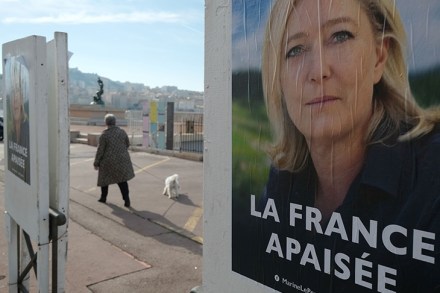Low life | 23 March 2017
My joints were aching suddenly and unaccountably — fingers, wrists, elbows, knees, toes — so I cried off the dinner invitation, volunteering instead to pick up Catriona and her lovely daughter, who was staying for a week, at around 11 p.m. At ten, Catriona rang. Had I forgotten? She sounded a bit squiffy. No, I hadn’t forgotten, I said. We’d said 11, hadn’t we? Well, they were ready to be picked up now, she said. When I arrived, the front door was open and I let myself in. The four of them were still seated at the dining table, chatting and drinking over the remains of the meal. I accepted



















